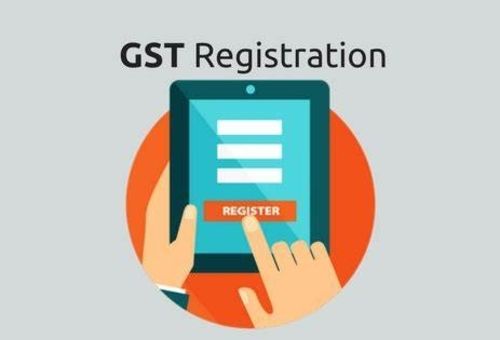How to Discover the Best GST Registration Services in Singapore Rapidly
How to Discover the Best GST Registration Services in Singapore Rapidly
Blog Article
From Start to End Up: The Ultimate Roadmap to GST Registration for Services Looking For Financial Security
Navigating the intricacies of Item and Provider Tax Obligation (GST) enrollment is an important step for services pursuing financial security. From recognizing the essential principles of GST to following post-registration standards, the procedure can appear daunting in the beginning glance. Nevertheless, breaking down the roadmap right into workable actions can simplify the registration journey for companies aiming to enhance their financial standing. Let's check out the crucial components that make up this supreme roadmap and find exactly how each stage adds to laying a solid foundation for financial success.
Comprehending GST Fundamentals
Delving into the basic principles of Item and Provider Tax Obligation (GST) is necessary for obtaining a comprehensive understanding of its implications on organizations and the economy. GST is a value-added tax levied on many products and services for residential intake. It has replaced several indirect tax obligations that existed in the pre-GST period, simplifying the tax obligation structure and boosting ease of doing service in India. Under the GST system, both solutions and goods are strained at a certain rate, which is determined based upon their classification. If their annual turnover goes beyond the threshold limitation established by the government, businesses are needed to register for GST. Input Tax Credit Rating (ITC) is a substantial function of GST, permitting companies to assert credit report for taxes paid on inputs, lowering the total tax problem. Recognizing the fundamentals of GST is critical for companies to abide with tax guidelines, handle their finances successfully, and add to the country's financial development by joining a transparent tax system.
Qualification Standards for Enrollment
To sign up for GST, organizations have to meet specific qualification criteria developed by the government. The main qualification requirement is that any type of organization included in the supply of items or solutions with a yearly aggregate turn over above the threshold limitation established by the authorities must sign up for GST. Since the present guidelines, the threshold limit for GST enrollment is a yearly aggregate turn over of 40 lakhs for organizations running within a state, besides special group states where the limitation is 20 lakhs. Additionally, certain organizations are called for to sign up for GST irrespective of their turnover, such as interstate vendors, laid-back taxable individuals, and organizations reliant pay tax under the reverse cost mechanism. It is crucial for organizations to completely evaluate their turn over and deal types to establish their GST registration obligations properly. go to my blog Failure to register for GST when eligible can cause penalties and lawful repercussions, making it essential for organizations to adhere to the defined eligibility standards.
Documents Needed for Registration
Having actually fulfilled the qualification criteria for GST registration, services must currently ensure they have the requisite papers in area to proceed with the enrollment process successfully. The documents needed for GST registration normally consist of evidence of business constitution, such as partnership deed, registration certificate, or consolidation certificate for different kinds of services. In addition, organizations require to give documents developing the primary location of service, such as a rental arrangement or electricity bill. PAN card of the service, in addition to the identity and address proof of promoters/partners/directors, are necessary for confirmation functions. Financial institution account declarations, together with terminated cheques or a copy of the bank passbook, are needed to verify the monetary details offered during registration. Services should have digital signatures all set for the licensed notary. Guaranteeing all these files are organized and conveniently offered will certainly speed up the GST registration procedure, making it possible for businesses to abide by tax obligation laws effortlessly.
Step-by-Step Registration Refine
Beginning the GST enrollment process involves a collection of organized steps to make certain a seamless and certified enrollment for companies. The primary step is to check out the GST website and fill out the registration type with exact information of business entity. Following this, the candidate obtains a Short-term Recommendation Number (TRN) which is utilized to return here are the findings to the application process if it's not completed in one go.
Next, all needed records based on the checklist offered by the GST portal demand to be posted. These records usually include proof of company identity, registration and address proofs of promoters, financial statements, and business entity's frying pan card.

Post-Registration Compliance Standards

Verdict
Finally, businesses seeking financial stability should comprehend the essentials of GST, meet qualification standards, collect necessary files, comply with the step-by-step registration procedure, and follow post-registration guidelines - Best GST registration services in Singapore. By adhering to these steps, services can ensure find out conformity with tax obligation policies and maintain economic stability over time
In addition, specific businesses are called for to sign up for GST irrespective of their turn over, such as interstate vendors, casual taxed individuals, and businesses accountable to pay tax obligation under the reverse fee mechanism.Having fulfilled the qualification requirements for GST registration, businesses must currently ensure they have the requisite files in location to proceed with the registration process efficiently. The records required for GST enrollment commonly include evidence of business constitution, such as collaboration deed, enrollment certification, or unification certification for various types of businesses. Furthermore, services need to supply papers developing the primary area of company, such as a rental agreement or electricity expense.Commencing the GST registration procedure entails a series of structured actions to ensure a certified and seamless registration for organizations.
Report this page